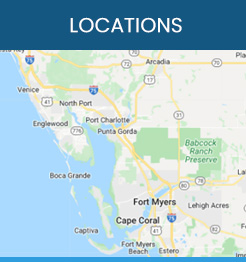Small Joint Arthritis Treatment Specialist in Fort Myers, and Port Charlotte FL
Small joint arthritis is the inflammation and degeneration of the joints in the fingers, toes, wrists, and other small joints. Symptoms include pain, stiffness, edema, and a limited range of motion in the affected joints. Small joint arthritis can cause joint deficiencies and functional disability over time. Early detection and treatment can be vital to reducing the condition’s impact on everyday life. Consult Dr. Stephen L. Helgemo, Jr. MD at Florida Hand Center if you have persistent joint symptoms. For more information, contact us or request an appointment online. We have convenient locations in Fort Myers, FL, and Port Charlotte, FL.


Table of Contents:
What is Small Joint Arthritis?
What causes Small Joint Arthritis?
How is Small Joint Arthritis diagnosed?
What are the treatments for Small Joint Arthritis?
We can perform a variety of fine movements with our fingers thanks to their many small joints. Joints are able to move because cartilage lines them and provides a smooth surface for gliding. Wear and tear on the cartilage can cause the joint to stop functioning normally, causing stiffness and pain. A dull or “toothache” type of pain is one of the early symptoms of small joint arthritis. Pain may occur hours later or even the next day after periods of increased use. Some people experience more pain and stiffness in the morning.
The thinned cartilage in the finger joints causes small joint arthritis. Joints become stiff, swollen, and/or painful as a result. Osteoarthritis, rheumatoid arthritis, gout, or other inflammatory conditions can cause painful arthritic inflammation. The bones can lose their normal shape over time, causing more pain and further motion limitations. When chronic inflammation occurs, the joints themselves can become enlarged.
There are numerous types of small joint arthritis, for this reason, the potential causes are similarly varied. As a result of arthritis, one or more joints become swollen and tender. It is common for arthritis to cause joint pain and stiffness, which usually worsens with age. Rheumatoid arthritis and osteoarthritis are the two most common forms of arthritis. A joint is formed when two bones meet at their ends and cartilage – a hard, slippery tissue – breaks down as a result of osteoarthritis.
A person with rheumatoid arthritis has an immune system that attacks the joints, starting with the lining of the joints. When you have too much uric acid in your blood, you can develop gout. There are other types of arthritis that can be caused by infections or underlying diseases, such as psoriasis or lupus.
When osteoarthritis, the most common type of arthritis, occurs, the slick, hard coating on the ends of bones that forms a joint is worn away by wear and tear. Bones are cushioned by cartilage and allow frictionless joint motion. However, enough wear and tear can cause the bones to grind directly against one another, resulting in pain and restricted movement. An injury or infection can hasten wear and tear over many years, or it can occur over a short period of time.
The diagnosis is determined by the patient’s symptoms, a thorough physical examination, and x-rays. There may be stiffness and swelling in the fingers, as well as pain that is reproduced by manipulating the fingers. A crooked finger or enlargement of the joints may occur as a result of deformity. The presence of other conditions such as tendonitis or carpal tunnel must be ruled out.
A variety of treatments are available for small joint arthritis of the hand, including medications (as well as alternative medication such as glucosamine), splinting, injections, and surgery. In the absence of significant pain, arthritis may not require any treatment, as there is no treatment that can slow or reverse the disease. Patients with symptoms are treated without surgery in the majority of cases. An injection of steroids can provide pain relief for months or even years.
It is possible to repeat the injections, but they should demonstrate long-term effectiveness. The use of surgery is reserved for patients whose non-surgical treatments have failed. Most patients who require surgery have severe pain; deformity without pain is not usually an indication for surgery. Joint replacements and fusions, also known as “freezing” the joint, are both surgical options.
Following surgery, most patients are able to use their hands lightly and even return to work. In choosing a treatment option, it is important to consider the individual needs of the patient.
Treatment of small joint arthritis is available at Florida Hand Center. We serve patients from Port Charlotte FL, Fort Myers FL, Estero FL, Murdock FL, Punta Gorda FL, Charlotte Harbor FL, Cape Coral FL, Lake Suzy FL, Harbour Heights FL, and Solana FL.


Additional Services You May Need
▸ Carpal Tunnel Syndrome
▸ Basilar Joint Arthritis
▸ Trigger Finger
▸ Dupuytren’s Contracture
▸ DeQuervain’s Tendonitis
▸ Ganglion Cysts
▸ Cubital Tunnel Syndrome
▸ Lateral Epicondylitis
▸ Small Joint Arthritis
▸ Wrist Pain
▸ Scaphoid Fracture Treatment
▸ Flexor Tendon Injuries Treatment
▸ Hand Tumors Removal Surgery
▸ Work Related Hand Injuries







